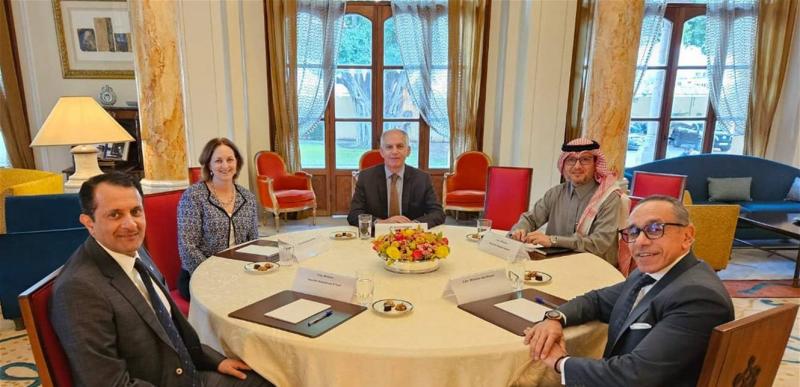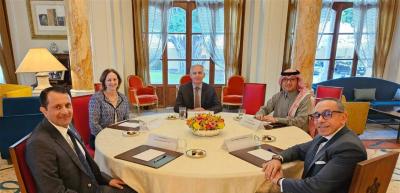Amid anticipation for the outcome of U.S. Senior Advisor Amos Hochstein's talks with French Presidential Envoy Jean-Yves Le Drian in Paris regarding defusing tensions in the south, the atmosphere of escalating tensions in the border areas raises significant concerns about the possibility of the situation nearing an explosion that could lead to extremely dangerous consequences. The mutual threats between Israel and Hezbollah have reached a peak, indicating to political observers that there is no turning back, and a large-scale war has become the most likely option. This is after Israel disregarded all calls for calm, with its leaders asserting that they have no choice but to insist on carrying out a ground assault against Lebanon to push Hezbollah north of the Litani River, according to what is stipulated in UN Resolution 1701, as reported by "Al-Liwaa."
Despite increasing talks about American and French efforts to de-escalate tensions, the southern front continues to endure escalating bombardments and destruction by the Israeli army against Lebanese villages and towns. Diplomatic sources do not hide their fears of uncalculated developments that may occur on the Lebanese front if reconciliation efforts fail, amidst a real concern over the widening scope of confrontations as Israel attempts to circumvent international endeavors aimed at preventing the conflict from expanding, against Hezbollah's insistence on linking the southern front to the situation in Gaza. Hochstein has tried multiple times to reach a solution for the situation in the south, but he did not receive a commitment from Hezbollah to fulfill what is required of it. This increases the anxiety over the conflict's potential escalation.
The messages carried by foreign envoys visiting Lebanon include a clear threat that Lebanon will pay the price for any mistakes Hezbollah might make, which could drag Lebanon into war, even as they indicate that both Lebanon and Israel do not seek escalation, under strong international emphasis on adhering to Resolution 1701. Meanwhile, Hezbollah officials assert that any Israeli aggression against Lebanon will be met with a fierce response that would not cross the occupier's mind and would find itself in a dire situation should it choose to attack Lebanon. However, with the ongoing confrontations on the border exceeding established rules of engagement between Hezbollah and Israel, information suggests that Hezbollah is fully prepared for what is to come and wants Israel to recognize its capability to impose new rules of engagement and the surprises that may follow.
While it is reported that ambassadors from the Quintet may resume their activities alongside the return of Arab and international consultations concerning the presidential file efforts to align views regarding the presidential elections, it is noted that a Qatari envoy is expected to arrive in Beirut in the coming days to hold a series of meetings with various officials and political leaders. Visitors to Patriarch Bechara Al-Rahi reiterated his emphasis on the necessity of completing the presidential elections as soon as possible according to the constitutional texts, rather than by relying on customs that do not align with the requirements of these texts. The Patriarch praised the efforts to facilitate the presidential elections to shorten the distance between political components. However, Bkirki maintains its stance that Parliament is invited to fulfill its duty to meet and elect a president from among the nominated candidates.
Sources from Bkirki confirmed that the Maronite Patriarchate does not support any individual but is primarily concerned with conducting the election process according to constitutional mechanisms over multiple sessions until the new president is elected, regardless of the president's identity. However, resorting to steps that are not stipulated in the constitution during the electoral process is something Bkirki rejects and cannot accept. Meanwhile, diplomatic sources emphasized the necessity of reaching a consensus on electing a president quickly, noting that there is now a conviction among these leaders that electing a president constitutes a point of intersection for all parties.
In addition, while Saudi support has resurfaced with a donation of ten million dollars from the King Salman Center to implement several vital projects, Gulf sources confirmed to "Al-Liwaa" that this support indicates that the Kingdom of Saudi Arabia will not abandon Lebanon amid the difficult circumstances it is facing. However, they pointed out that everything is contingent on the Lebanese front, particularly regarding the election of a new president, awaiting the conclusion of the Israeli war on Gaza, as concerns focus on what is happening in the region amid serious worries about the expansion of the conflict and its escalation throughout the region.




